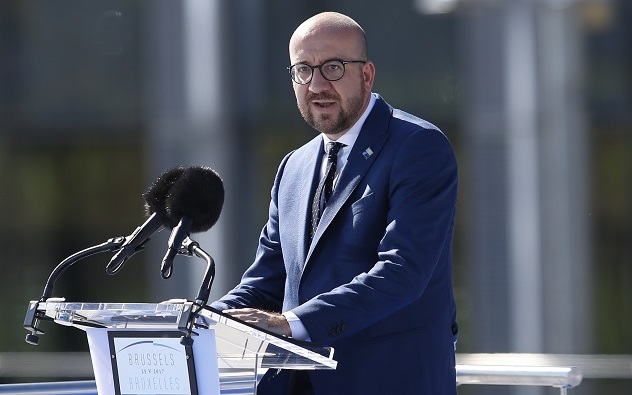Moment right to build new dynamic with Russia: Belgian PM
Published : 30 Jan 2018, 22:28
Belgian Prime Minister Charles Michel has been pleading for de-escalation of tensions with Russia after an official visit to Moscow on Monday.
Michel wants to "revive dialogues" between the two countries and develop a strategic and constructive dialogue after three years of economic sanctions imposed by the European Union in 2014. This was done in the aftermath of Crimea and the outbreak of war in the eastern Ukrainian region of Donbass.
As one of the first European leaders to visit Russia since the beginning of the crisis, Michel hopes to build on previous visits by other European leaders who want to re-establish a constructive dialogue with Russia.
Western sanctions and Moscow's countermeasures have crippled bilateral relations since 2014. "I am in solidarity with the sanctions, but sanctions are not a goal in themselves, they are a means," Michel said.
"It is necessary to have a constructive dialogue with Russia to give ourselves an opportunity to change our relationship," Michel said Monday after arriving in Moscow. For him, "the moment has come to develop a new dynamic with Russia."
The adoption of international economic sanctions against a state or individuals has become a tool frequently used by international bodies in recent years.
It should be noted that although these international sanctions are decided within the framework of the UN, the United States and the European countries played a decisive role in their implementation.
Yet the effectiveness of international sanctions, especially economic sanctions, is often very difficult to gauge.
According to UN Assistant Secretary-General for Political Affairs Taye-Brook Zerihoun, because of their diversity and complexity, the implementation of UN sanctions regimes is a burden for member states and other entities.
EU sanctions against Russia were initially set up in July 2014 and reinforced in September 2014. Sanctions targeted the financial, energy and defense sectors, as well as the dual use of civilian and military goods, which damaged relations between Brussels and Moscow.
This has only worsened since the EU introduced a ban on agri-food imports.
On the other hand, it appears that these sanctions did not produce the expected effects, especially in the eyes of the Belgians.
"In recent years, Russia has strengthened its geostrategic foundation, as during its intervention in Syria. The risk of seeing Russia continue its growth by turning its back on Europe is growing, with other allies such as Iran and Turkey," Belgian newspaper Echo wrote on Tuesday.
In the face of many current international challenges, dialogue and negotiation are the only way forward for an appropriate resolution of the problem.
In mid-2018, the EU will have to once again adopt a common position on sanctions against Russia. Will Europe, which has so far trailed in U.S. footsteps, succeed in becoming more autonomous?
Will voices rise in favor of lifting sanctions and reestablishing a partnership with Russia? Only time will tell.


